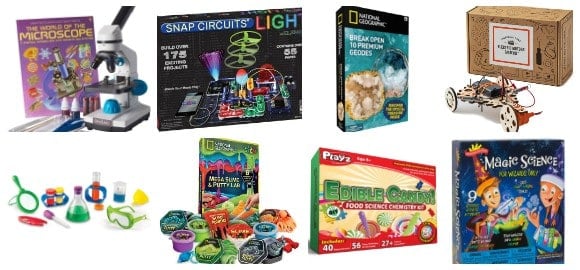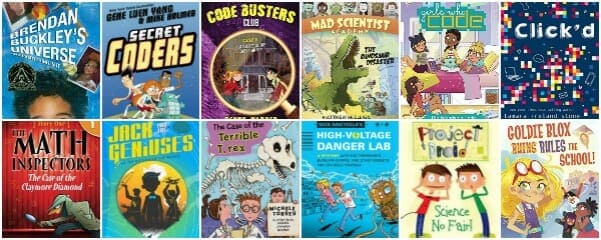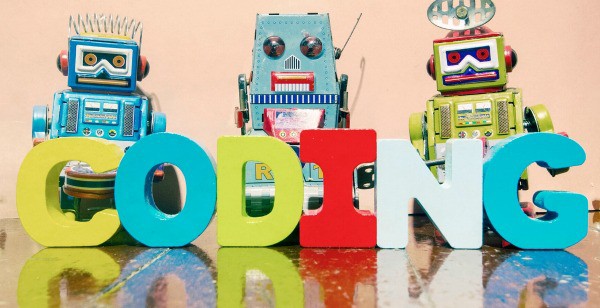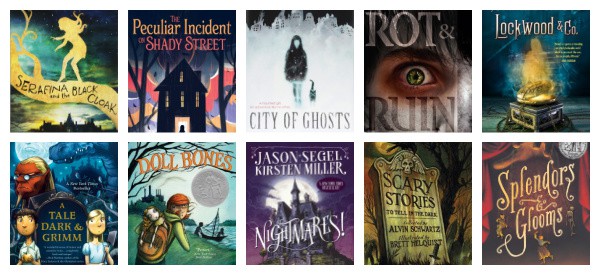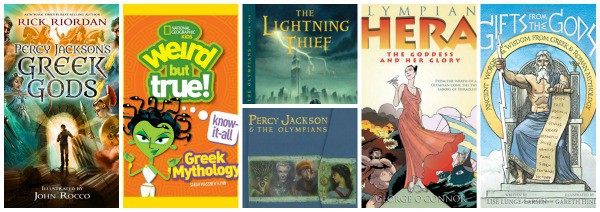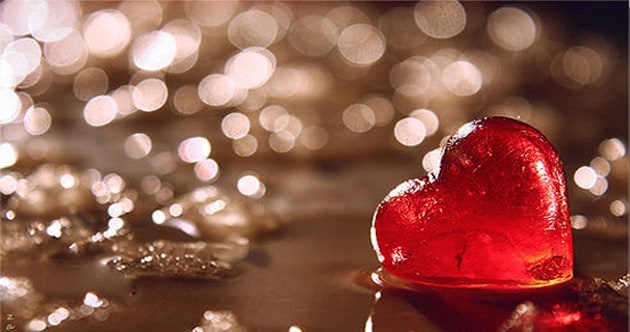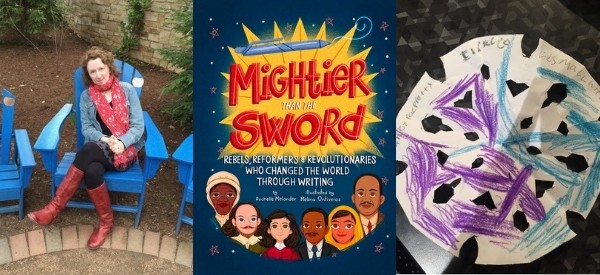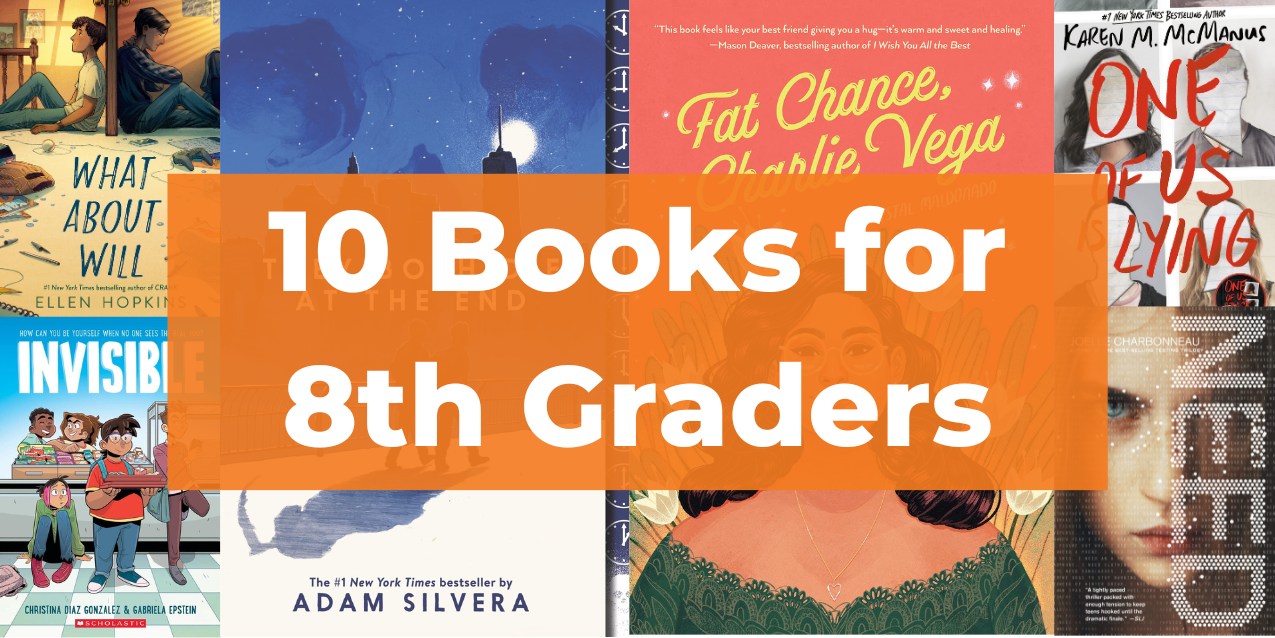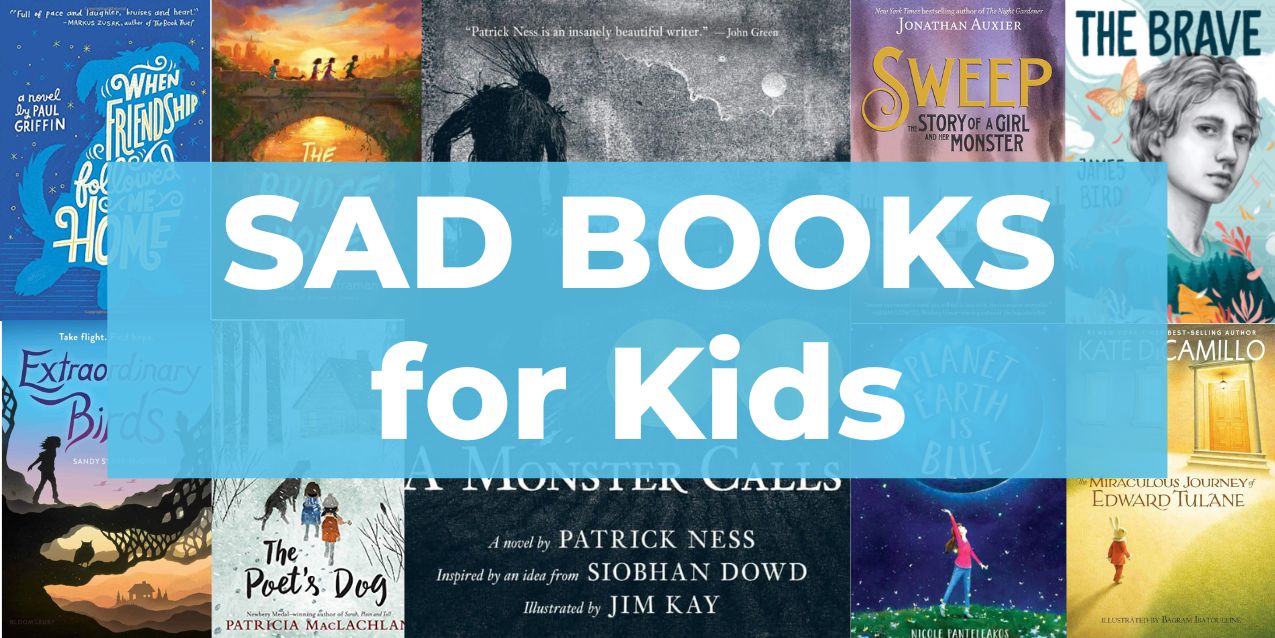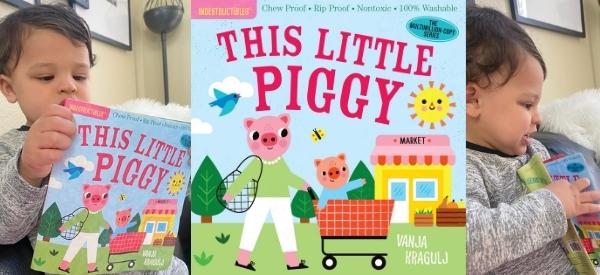35 Best Books about the Solar System for Kids
This post may contain affiliate links.
Read the best books about solar system for kids. Learn about the planets, stars, moon, space travel, the planets in our solar system, and more. Why? Because space is endlessly fascinating!
Read these nonfiction books and fiction children’s books with your children to learn more about space. The books’ topics include how to be an astronaut, what Mars life would be like, facts about the moon, the planets, the parts of the solar system, and what happened to Pluto.
If you like space, you will want to start reading good science fiction (sci-fi) books, too!
Best Solar System for Kids Books
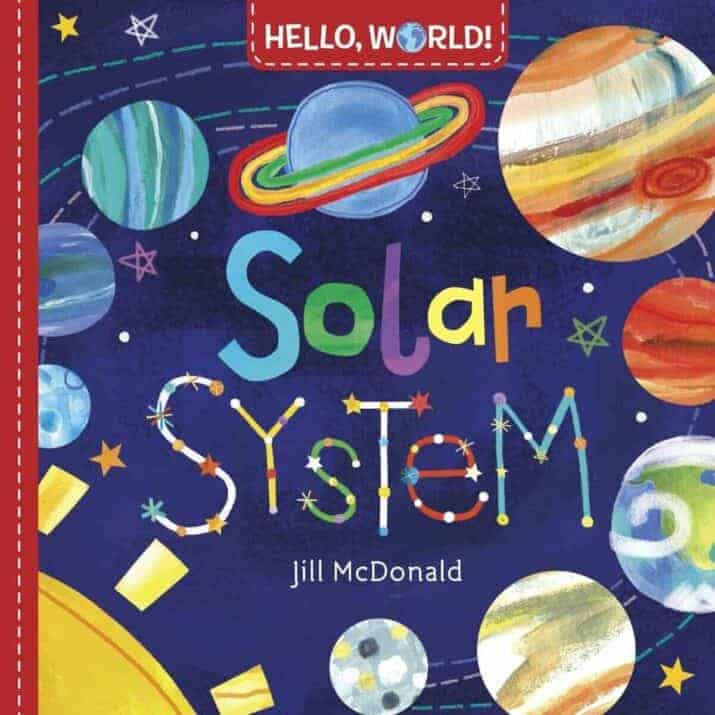
Hello World, Solar System by Jill McDonald (ages 2 – 5)
Perfect for toddlers and preschoolers, this nonfiction book about the solar system for kids is very age-appropriate. It asks questions and shares basic information in an accessible way. “Mercury is the closest planet to the sun. / Ouch! Asteroids and comets often hit this planet.” Cheerful paper cut, collaged illustrations make this very visually appealing.
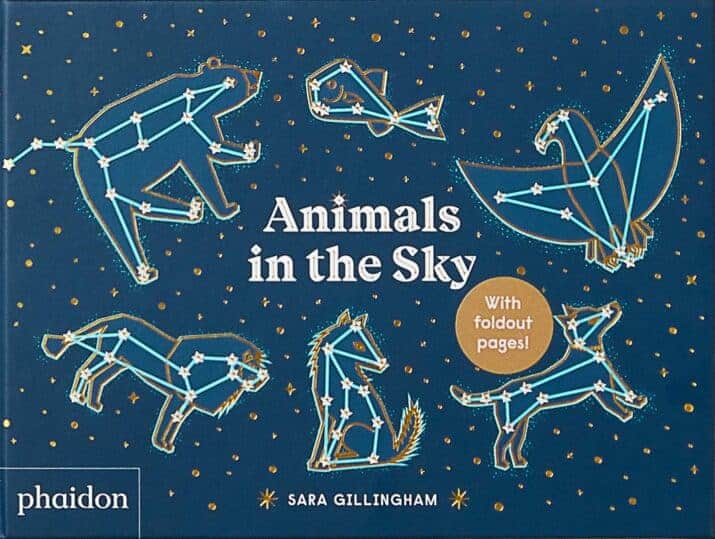
Animals in the Sky by Sara Gillingham (ages 4 – 8)
Riddles help kids learn the constellations by their shapes with lift-the-flap answers and that give the answer and more information. “I have a big bushy mane, a long tail, and a loud roar. I am the king of the jungle! What animal in the sky am I? I am the Lion. My brightest star is called Regulus, which means “little king.”” The white and gold text and illustrations pop out off the page set onto turquoise and navy blue backgrounds.
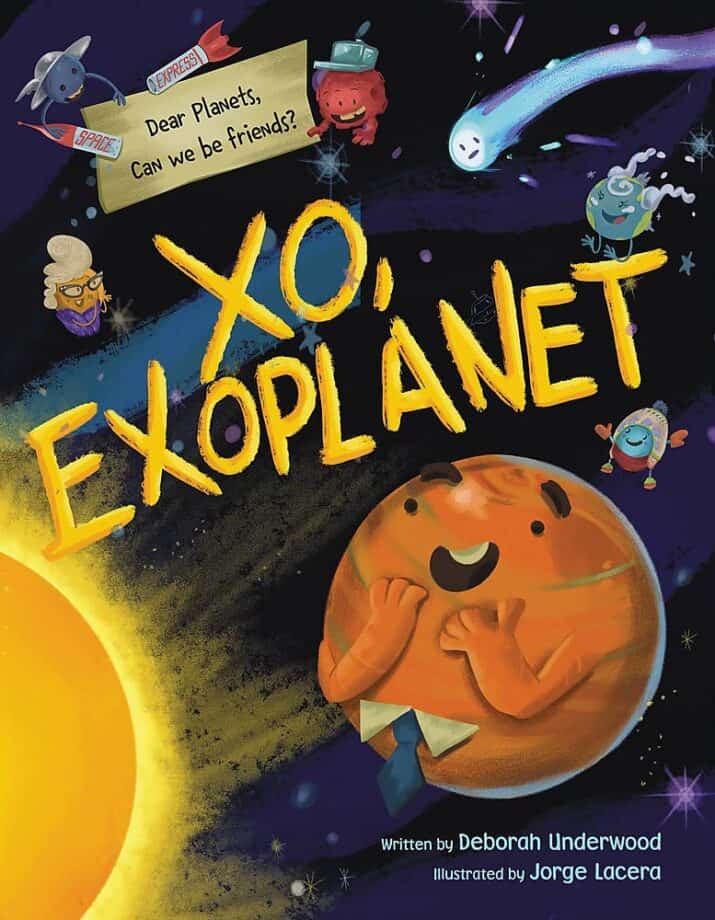
XO, Exoplanet by Deborah Underwood, illustrated by Jorge Lacera (ages 4 – 8)
Get ready to laugh at this hysterical story with a poignant message about seeing multiple perspectives! When our solar system’s planets write a friendly letter to an exoplanet, their communication turns into a funny argument when the exoplanet tells our planets that THEY are the exoplanets. A visiting comet helps our planets to see that depending on how you’re looking at things, both arguments could be true. Letters, dialogue bubbles, and expressive illustrations capture the planets’ strong emotions.
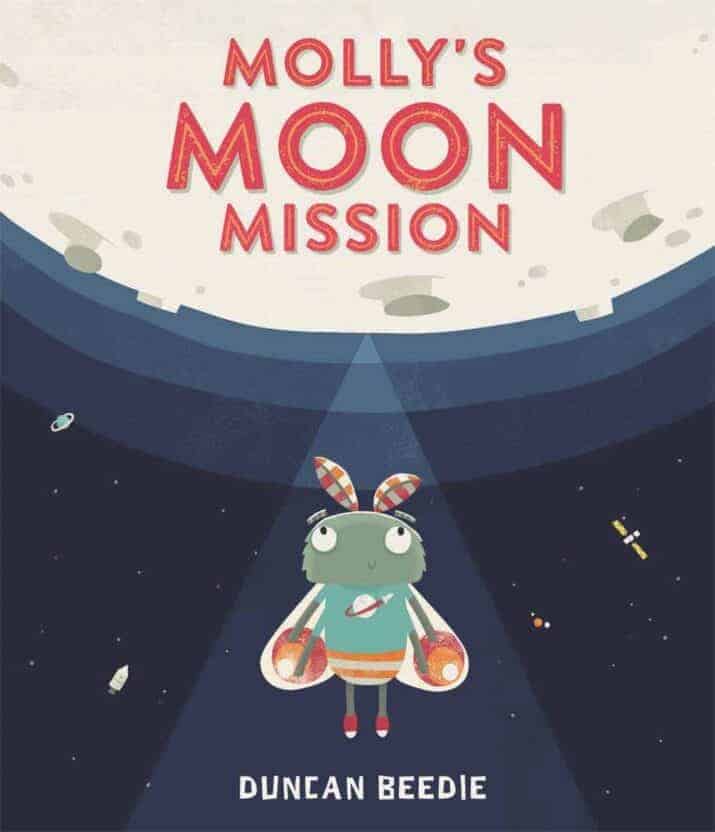
Molly’s Moon Mission by Duncan Beedie (ages 4 – 8)
Preschoolers will love this exciting adventure of a moth who wants to fly to the moon. Even when everyone tells her it’s impossible, Molly persists. She gets higher and higher and finally achieves her mission. A darling solar system for kids story.
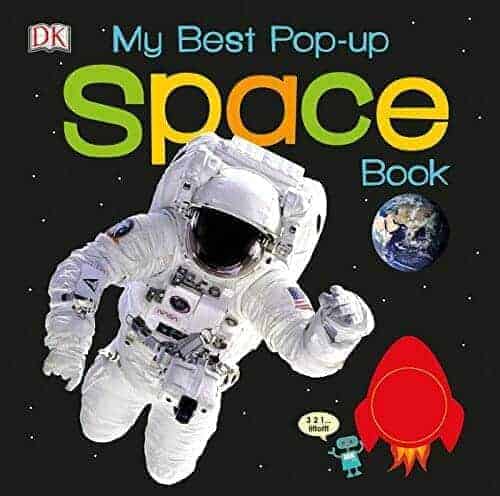
My Pop-Up Space Book by DK (ages 4 – 8)
Isn’t this book fun!? Kids love pop-up. Add science information about space — the Earth, sun, moon, stars, space travel, and astronauts –, and you’ve got an excellent nonfiction book choice for young learners.
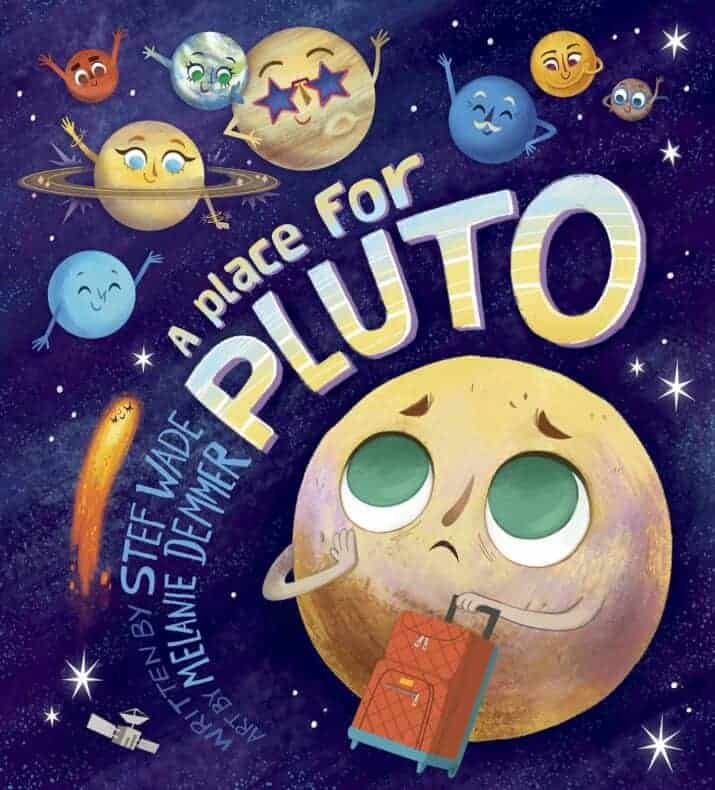
A Place for Pluto by Stef Wade, illustrated by Melanie Demmer (ages 4 – 8)
Pluto used to be one of the famous nine planets until one day, he gets the worst news ever… he is too small to be a planet. He’s crushed. He searches the galaxy to find a place he fits. But he learns about comets, and he’s not a comet. He talks to asteroids and meteoroids and he’s not one of them either. Finally, he discovers someone who looks just like him — a dwarf planet. The story skillfully entertains while educating readers about Pluto and other solar system elements. Great artwork throughout this fantastic, emotionally resonate story.
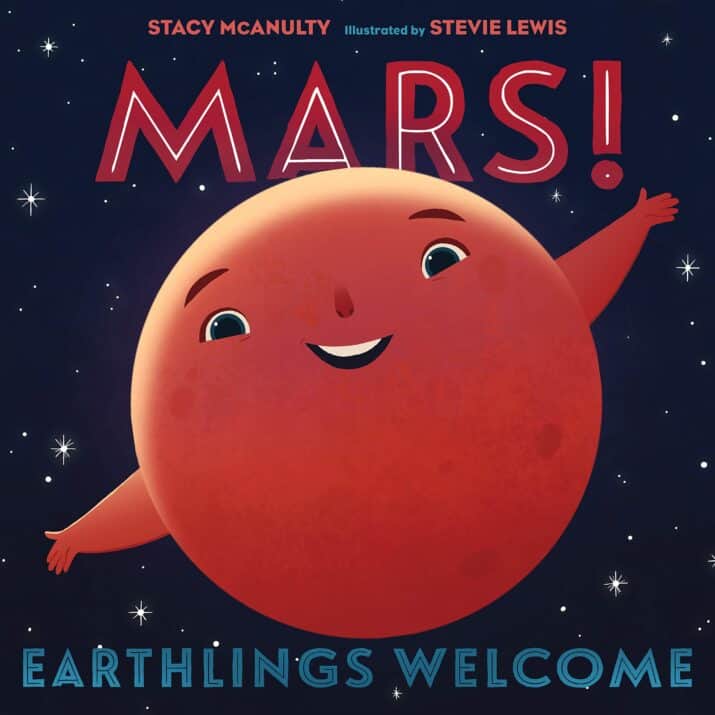
Mars: Earthlings Welcome by Stacy McAnulty, illustrated by Stevie Lewis (ages 4 – 8)
Mars is a planet with a big personality. In first-person narration, Mars shares all its many features that are much better than Earth’s. Like two moons and 37 more minutes in a day! It’s funny, entertaining, and very informative. I would love to use this in a writing class to teach voice, point of view, and even organization.
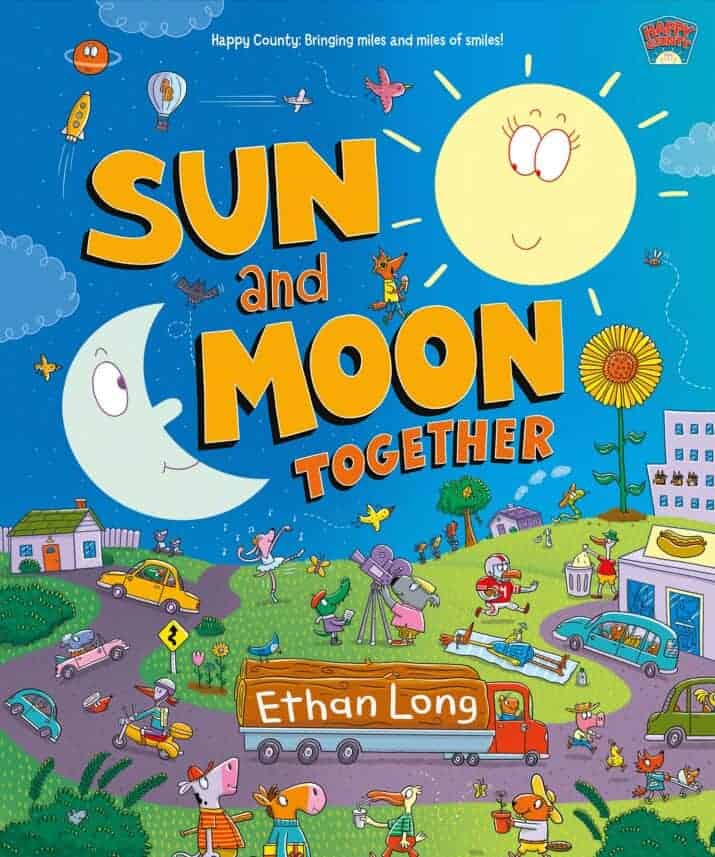
Sun and Moon Together by Ethan Long
Long’s created a community (Happy County) with silly cartoons and stories that explain factual information while engaging the reader’s attention. Learn about the Sun and the Moon, the water cycle, the solar system, and delight in stories about characters like Wilbur and Orzo Bright whose hot air balloon pops and sinks to the bottom of the ocean. There’s so much to learn, see, and do in this entertaining book.
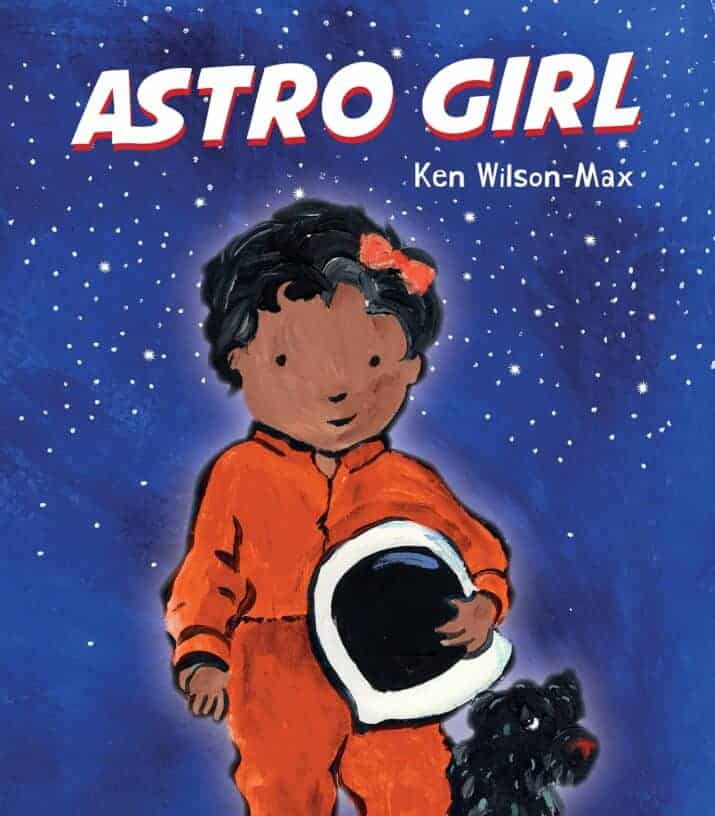
Astro Girl by Ken Wilson-Max
Father and daughter talk about the daughter’s plan to be an astronaut. Their playful relationship showcases the things that you must do as an astronaut — go around and around, eat food out of tubes, get used to zero gravity, and so forth. And the ending reveals that the girl wants to be just like her astronaut mom who has just returned from space.
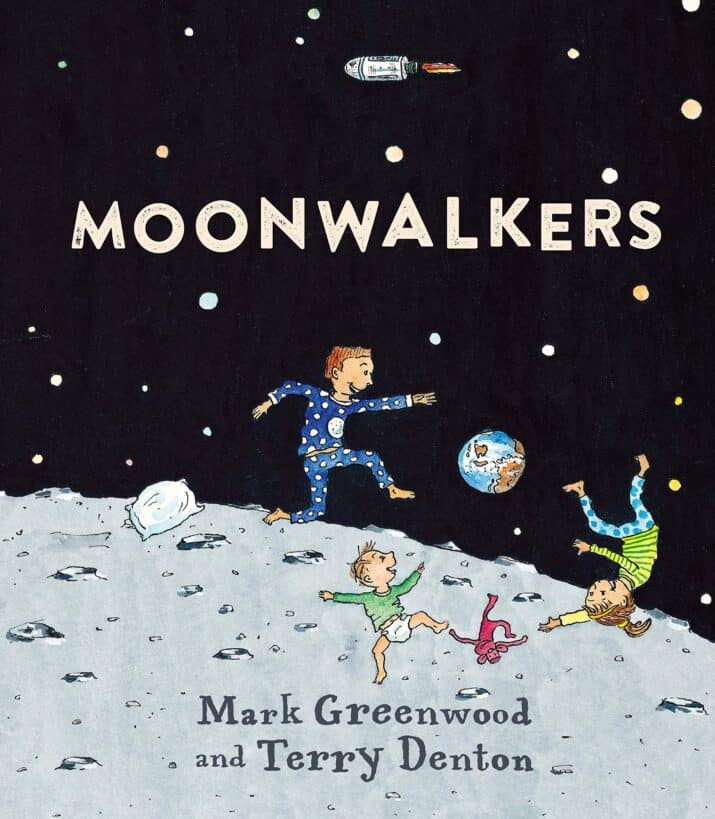
Moonwalkers by Mark Greenwood and Terry Denton
Set during the historic moon landing, this story is about three imaginative siblings who pretend play right along with the astronauts — talking to Mission Control, dressing in spacesuits, exploring the moon. Kids will pour over the fantastic, funny illustrations with many interesting details. The back matter explains the Apollo 11 Mission, an important solar system for kids story.
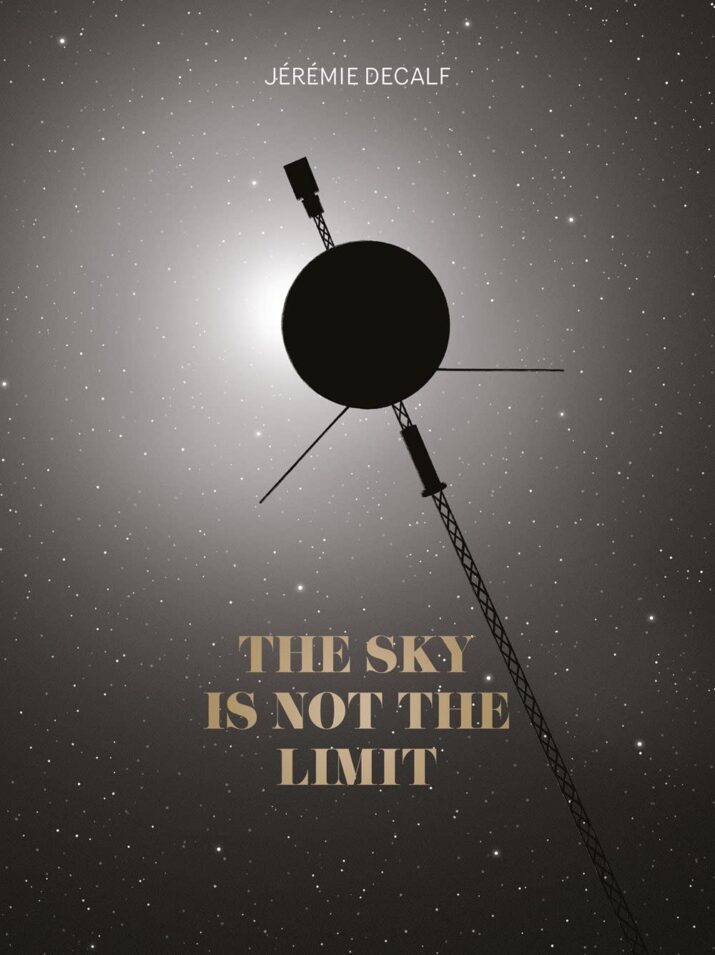
The Sky is Not the Limit by Jérémie Decalf
Voyager 2 writes about his experience from creation to exploration in the first person. Voyager 2 gets loaded on a rocket, released, and journeys to Jupiter, Saturn, Uranus, and Neptune. Sparse language and dark space backgrounds create a dramatic impact–and it’s so cool.
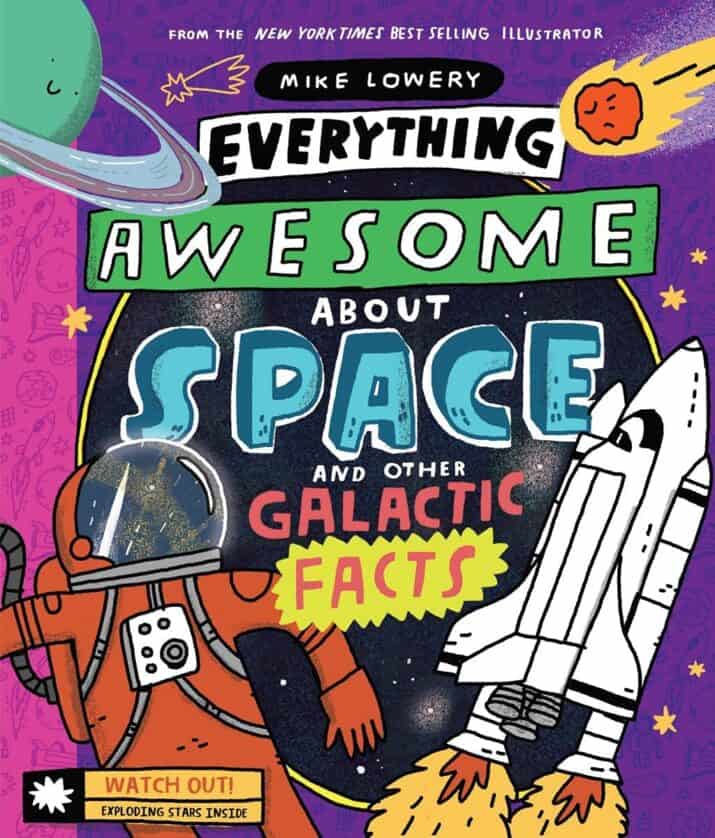
Everything Awesome About Space and Other Galactic Facts! by Mike Lowery
I love the layout and design of this book, it’s a feast for the eyes and makes this informational book fun to read. Plus, readers will learn a lot about space, including stars and space exploration. This is one of my top picks to teach the solar system for kids.
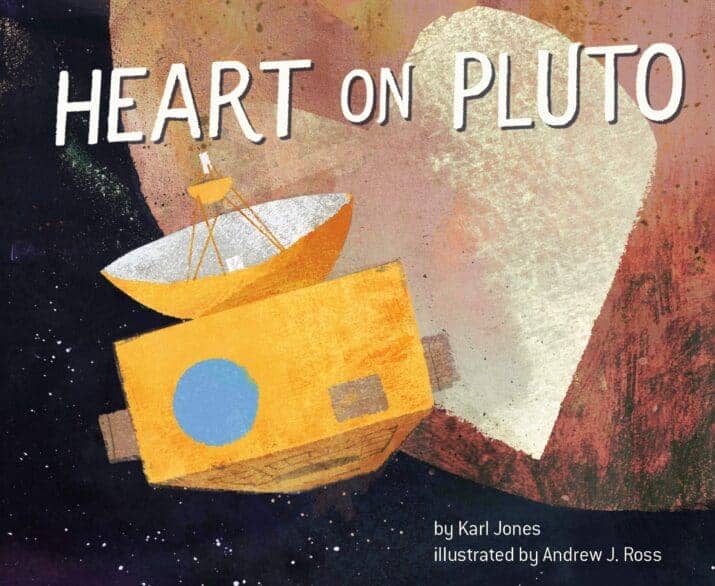
Heart on Pluto by Karl Jones, illustrated by Andrew J. Ross
A satellite named New Horizons narrates his exciting adventure from Earth, passing planets, all the way to Pluto; a trip that takes nine years. He says he doesn’t feel lonely because there’s a heart on Pluto and love from the Earth. Back matter with facts helps add depth to this picture book.
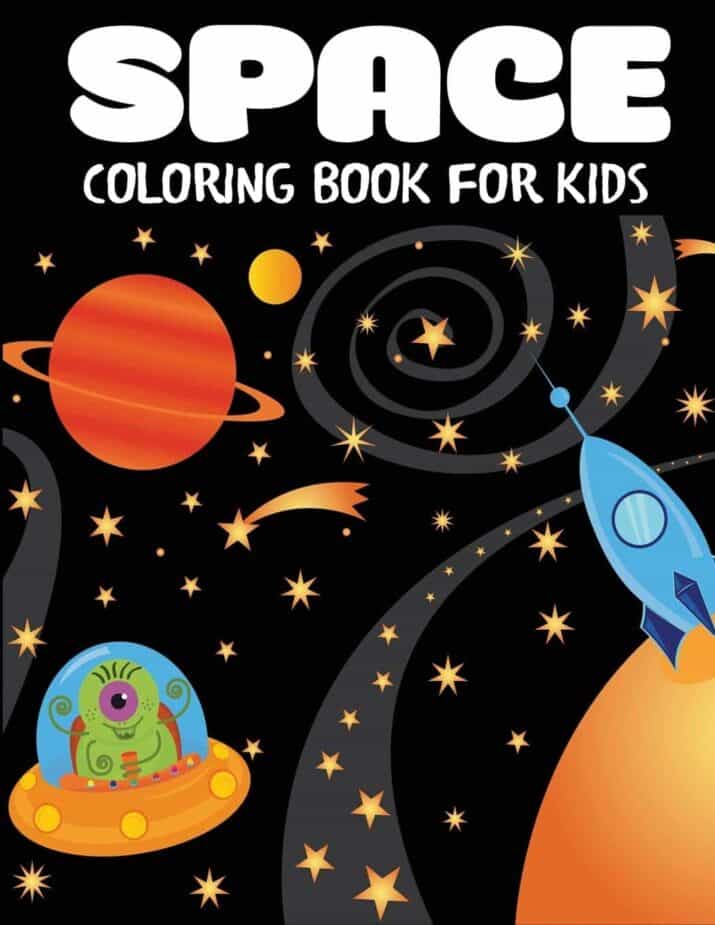
Space Coloring Book by Blue Wave Press
In this solar system coloring book, color full-page drawings of planets, spaceships, rockets, and even aliens.
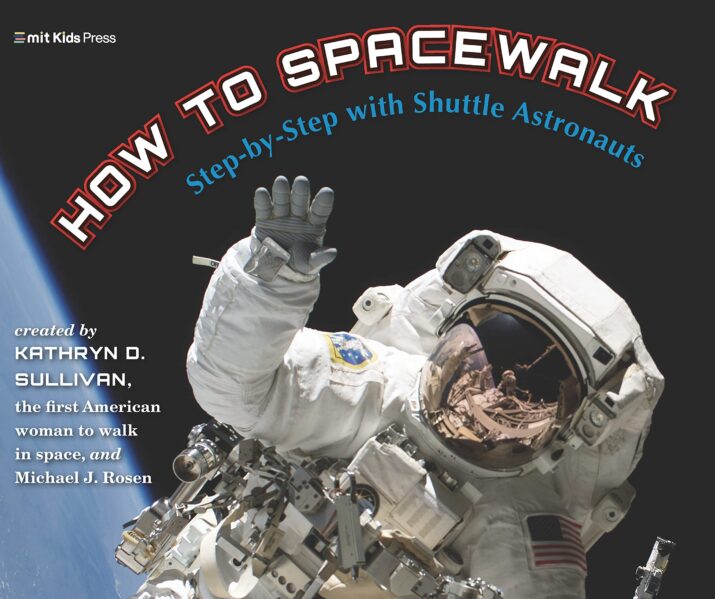
How to Spacewalk Step-by-Step with Shuttle Astronauts by Kathryn O. Sullivan
Despite the large amount of text, this is an interesting journey of a girl with a big dream of becoming an astronaut. Learn about training, equipment, spacewalking, and more.
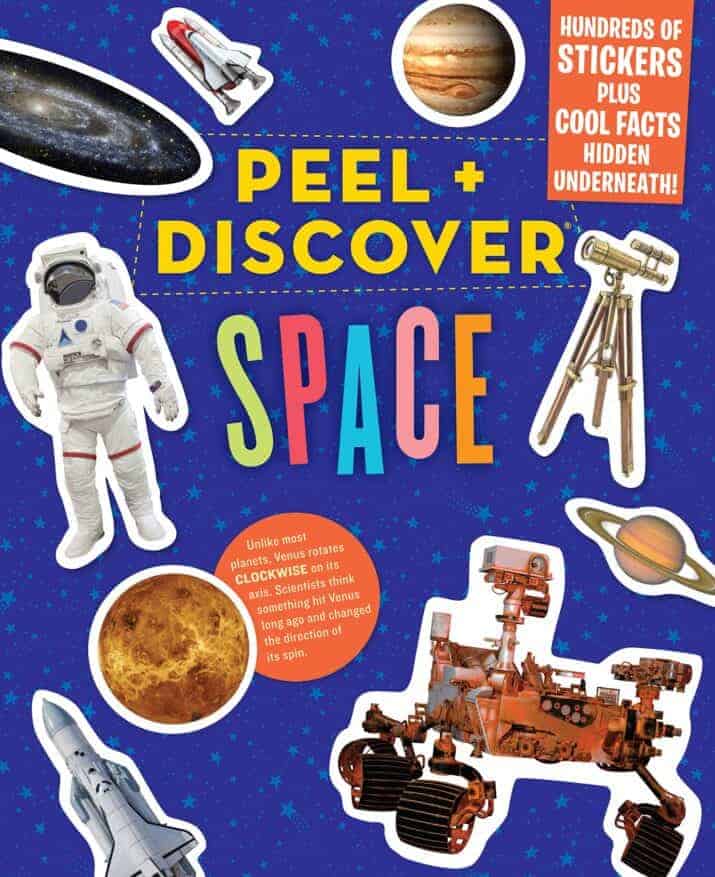
Peel & Discover: SPACE
Introduce the solar system for kids with facts about the planets, astronauts, asteroids, and constellations. Use your stickers to fill in the illustrations.
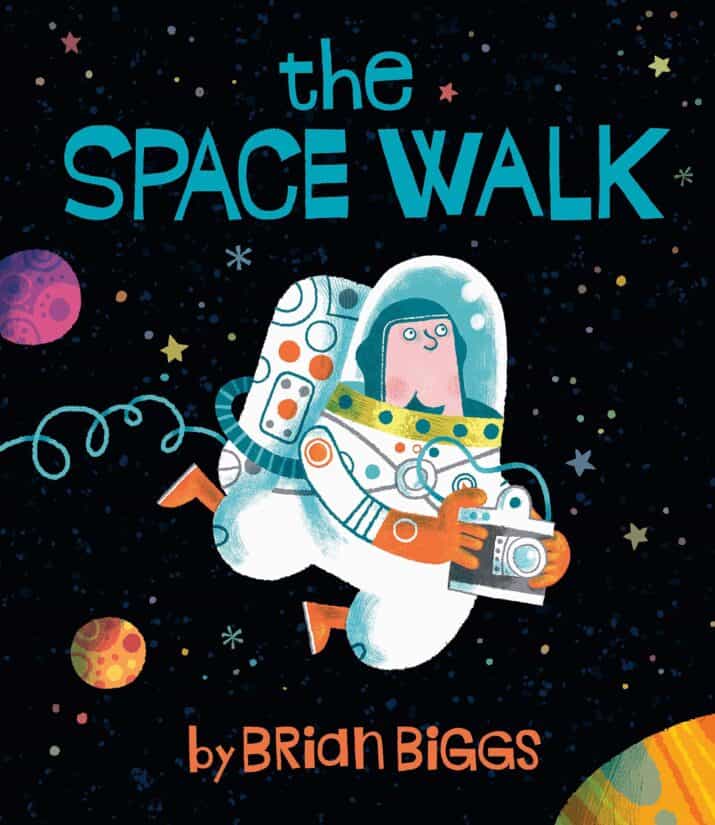
The Space Walk by Brian Biggs
Who knew being an astronaut would be boring or have so many rules? After Randolph does everything Ground Control wants, he finally gets to go out for a spacewalk, where he has a blast and makes a new friend. Vibrant illustrations.
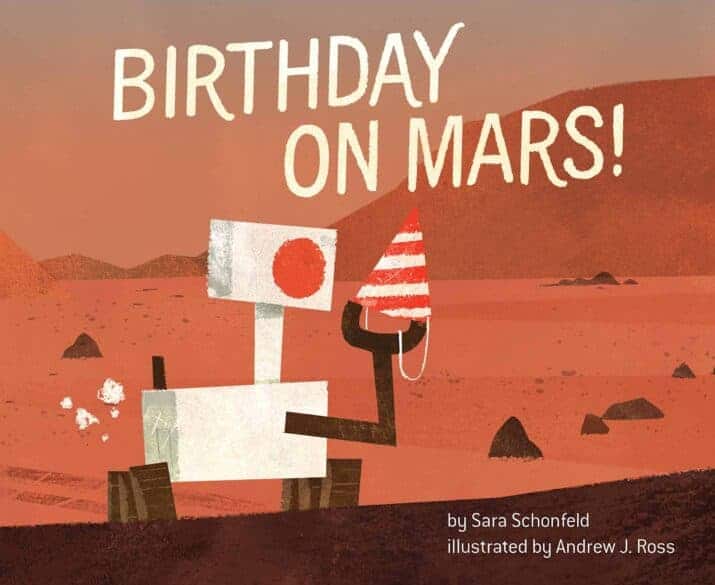
Birthday on Mars! by Sara Schonfeld, illustrated by Andrew J. Ross
Introduce the Mars Rover to young readers with this simple story about a robot named Curiosity who lives on Mars. He tells readers how his friends sent him to Mars to explore. He sends pictures home and takes a selfie birthday photo.
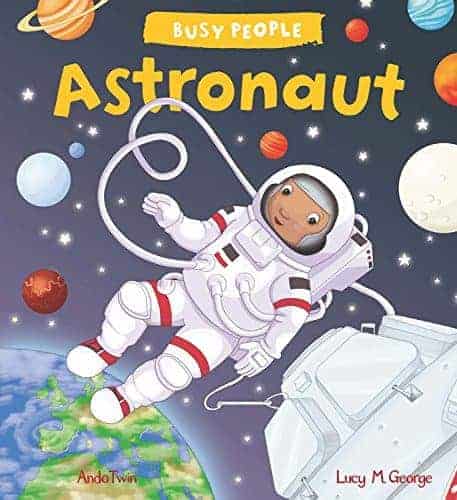
Astronaut (Busy People) by Lucy M. George, illustrated by AndoTwin (ages 4 – 8)
This is a wonderful, ethnically diverse picture book about Jenny and her work as an astronaut. Readers will enjoy learning about Jenny’s day on the space station, including the hi-jinxes of her Robot-bot. The solar system for kids book concludes with more information and vocabulary as well as activities. Well done!
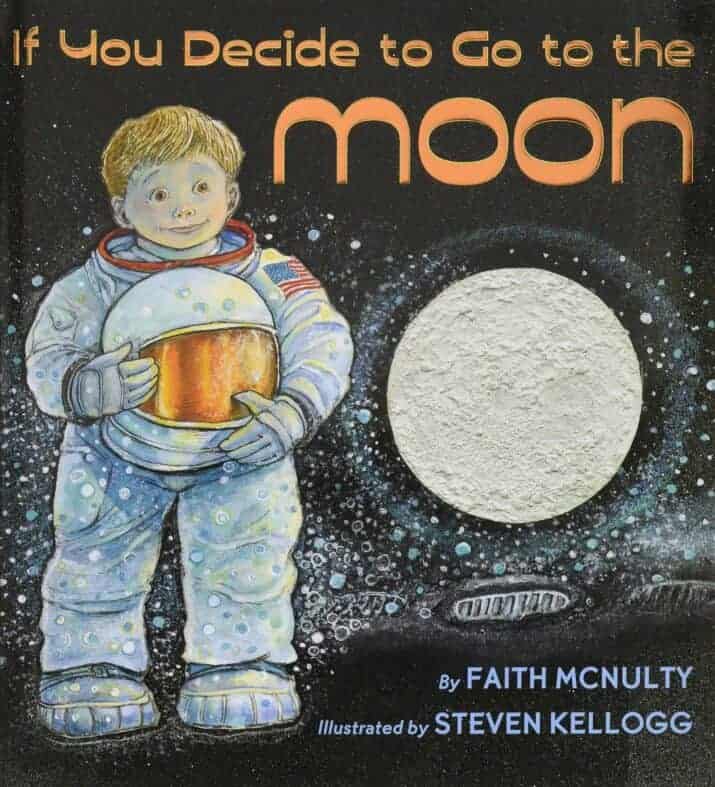
If You Decide to Go to the Moon by Faith McNulty, illustrated by Steven Kellogg (ages 4 – 8)
Written directly to the reader (you), this book gives you instructions for what to pack and expect if you travel to the moon. You’ll travel to the famous Sea of Tranquility where the first moon expedition landed. I like the facts and how the authors make the idea of moon travel personal, as if we were really making this plan.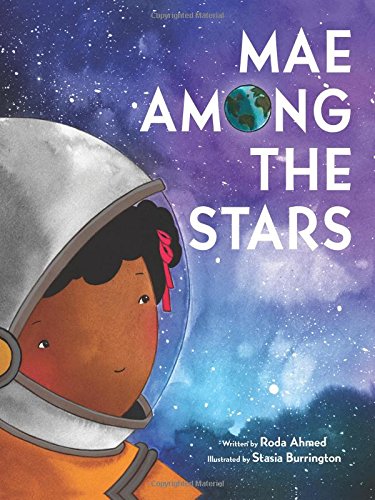
Mae Among the Stars by Roda Ahmed, illustrated by Stasia Burrington (ages 4 – 8)
Beautifully illustrated and inspirationally written! Little Mae dreamed of becoming an astronaut. Her parents told her she could do it if she worked hard, taking Mae to the library for information and encouraging her astronaut pretend play after dinner. Despite her teacher’s discouragement (“Nursing would be a good profession for someone like you”), Mae listened to her mom and stuck to her dream. Mae kept dreaming, believing, and working hard. She (Dr. Mae Jemison) succeeded; she became the first African American female astronaut in space.
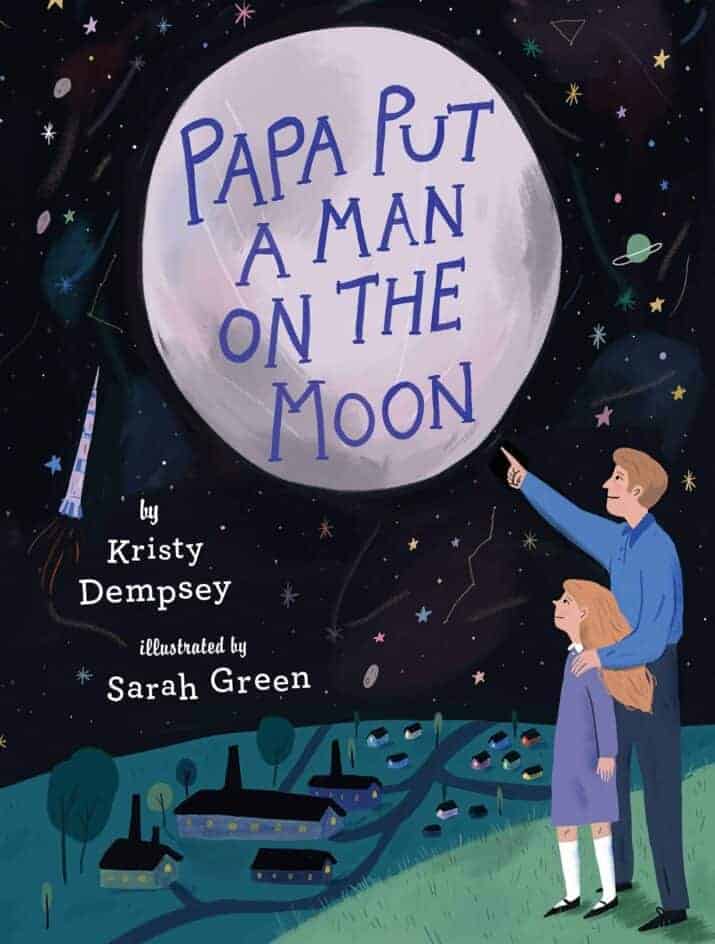
Papa Put a Man on the Moon by Kristy Dempsey, illustrated by Sarah Green (ages 4 – 8)
I like the simplicity of this story that gives us a snapshot of an important time in history, the moon landing, through the eyes of a little girl whose hard-working blue-collar father worked on the fabric of the astronaut’s spacesuits.
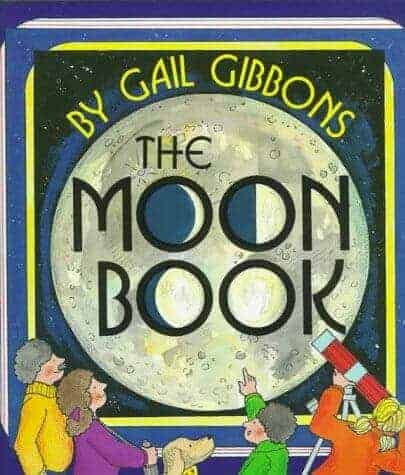
The Moon Book by Gail Gibbons (ages 5 – 8)
This book has it all — from the lunar cycles to the moon’s effect on the oceans to the moon’s importance in various cultures, you’ll find everything in this helpful, illustrated nonfiction book.
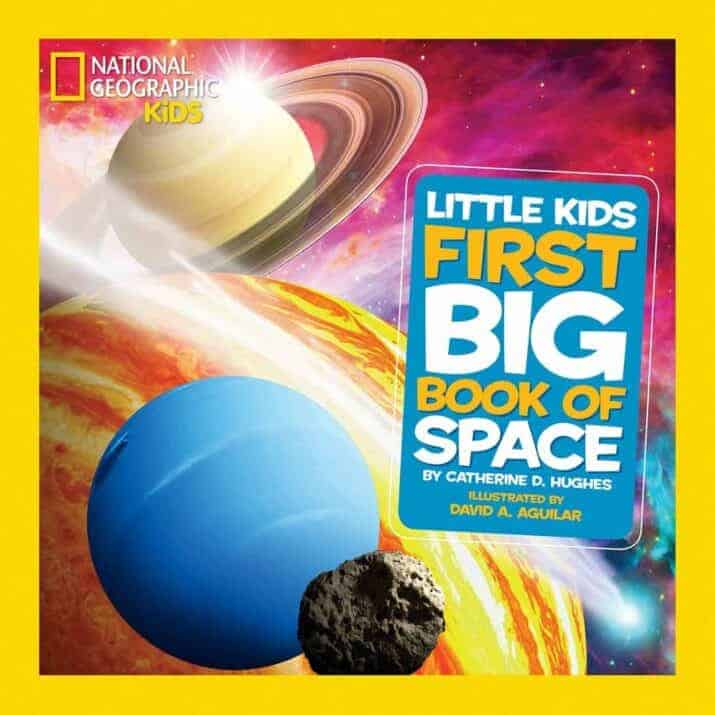
Little Kids First Big Book of Space by National Geographic Kids (ages 6 – 12)
I LOVE this book — it’s like yummy mind candy. The vivid photographs and colorful layout catch your attention. The information shared is just the right amount of text and facts per page as to not overwhelm readers.
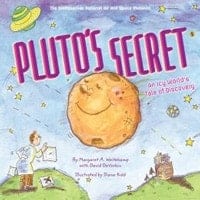
Pluto’s Secret An Icy World’s Tale of Discovery by Margaret A. Weitekamp with David DeVorkin, illustrated by Diane Kidd (ages 4 – 8)
This is a fascinating story of Pluto that will engage your kids (and you!) When Clyde Tombaugh discovered Planet X, a little girl who suggests the name Pluto after the Roman god of the dark underworld. She imagines Pluto was so far from the sun that it must also be a cold, dark place. However, Pluto knows he is no planet. So when astronomers declare him to not be a planet, he is thrilled. “Bingo!”
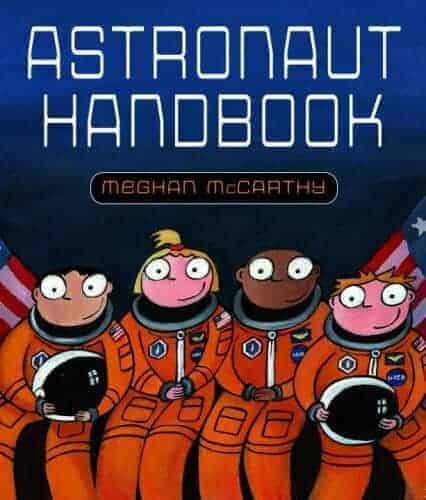
Astronaut Handbook by Meghan McCarthy
After reading all these books about space, your child might be wondering what it takes to become an astronaut! This picture book talks about the different jobs astronauts have and the hard work that you must put in before achieving this goal.
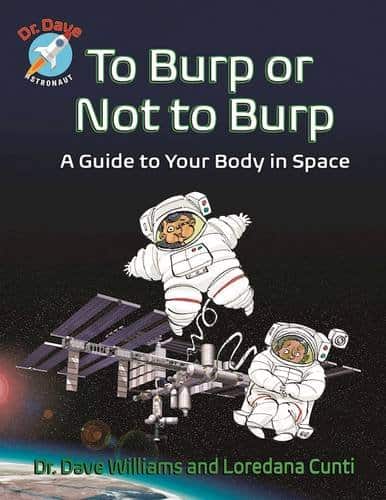
To Burp or Not to Burp A Guide to Your Body in Space by Dr. Dave Williams and Loredana Cunti, illustrated by Theo Krynauw (ages 6 – 12)
When you gotta go and you’re an astronaut, what do you do? Well, this book explains the details of peeing and pooping in space which is quite fascinating actually. But what about hair, brushing your teeth, taking showers, boogers, and burping? Well, you’ll find out that burping is high-risk without gravity and plenty more answers to the questions you never knew you had!
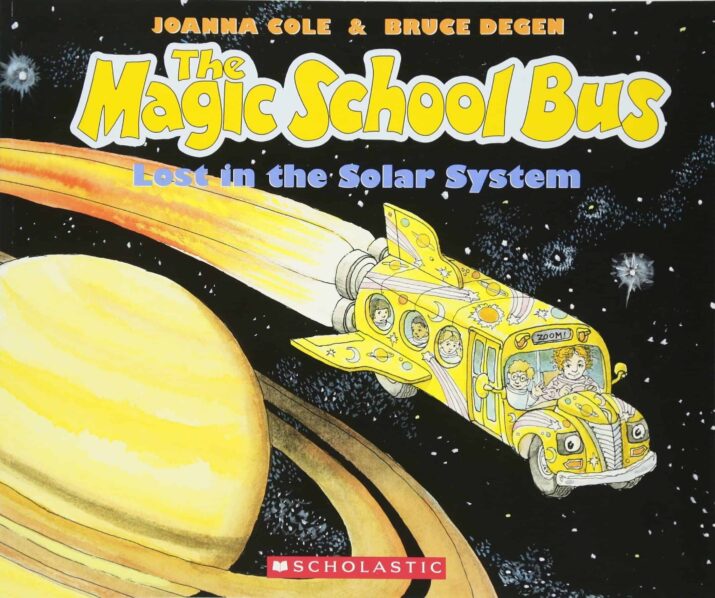
The Magic School Bus Lost in the Solar System by Joanna Cole
If you know these stories, you’ll expect that Ms. Frizzle takes her kids on a school bus – turned spaceship — through the solar system where they learn about space and experience harrowing adventures.
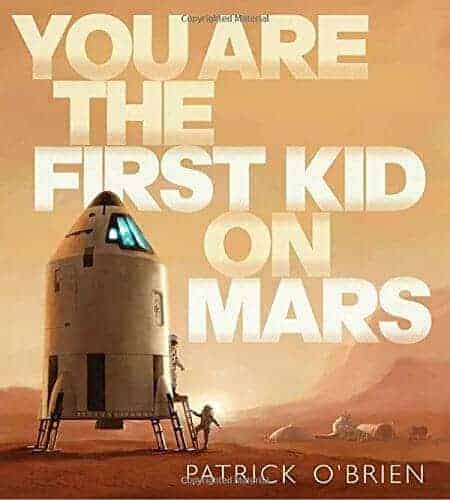
You Are the First Kid on Mars by Patrick O’Brien (ages 5 – 8)
This book imagines a future scenario where people live on Mars, maybe traveling through a space elevator to a space station to a rocket that will take you there. Once you’re living there, you can expect to help scientists and engineers with their important work. As you read this imagined future, you’ll learn information about the planet Mars.
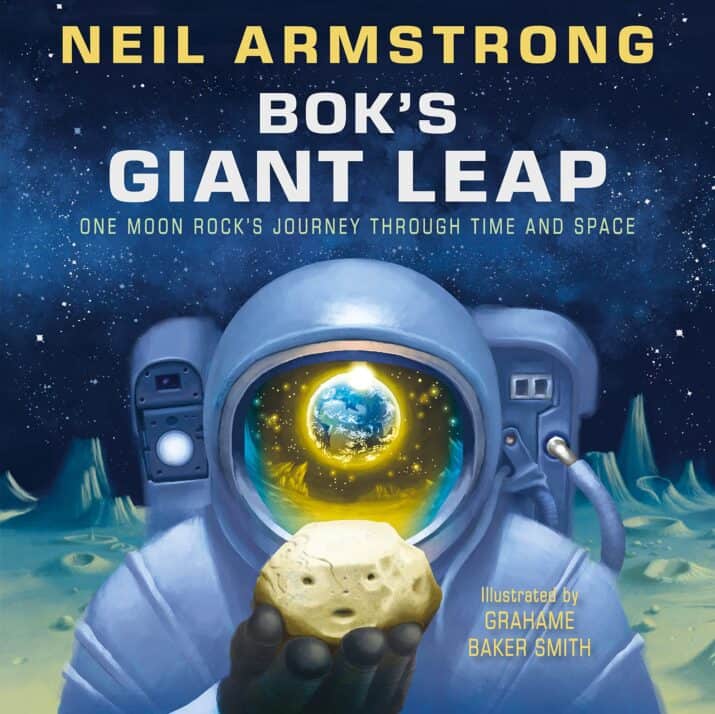
Bok’s Giant Leap by Neil Armstrong, illustrated by Grahame Baker Smith (ages 5 – 8)
Who is Bok the Moon rock? When a smaller planet crashes into Earth, it makes the Moon. A small Moon chunk breaks off and is called Bok. Bok remembers different events (dinosaurs, Ice Age) but misses some of the famous scientists and the launch of a space shuttle on Earth. Then one day, Bok is scooped up by an astronaut named Neil Armstrong and brought to Earth to share. Stunning illustrations.
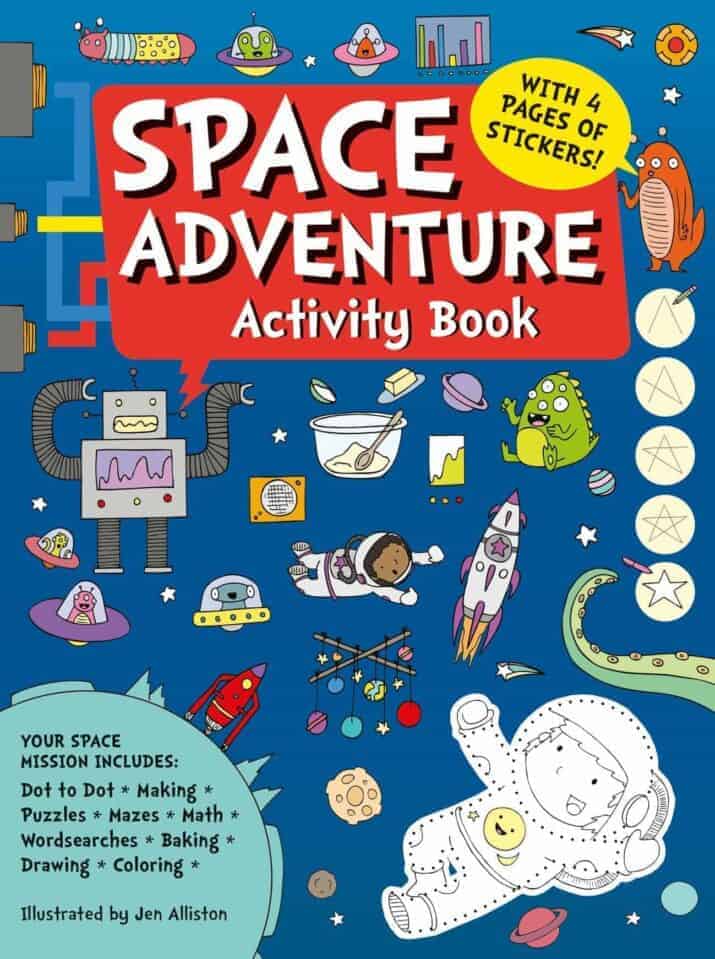
Space Adventure Activity Book by Jen Alliston (ages 8 – 12)
This space activity book is so eye-catching; I love it! It’s filled with stickers, dot-to-dots puzzles, mazes, word searches, coloring, and more. Kids will take a cosmic journey of adventure throughout every page!
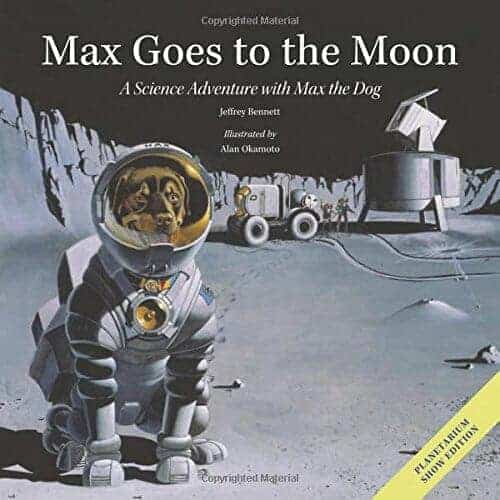
Max Goes to The Moon by Jeffrey Bennett, illustrated by Alan Okamoto (ages 6 – 10)
In this fictional story, Tori and her dog Max travel to the Moon on the first trip since Apollo. Their trip inspires people back on Earth. The world joins together in building a great Moon colony, complete with a university and an astronomical observatory. Nineteen insets of information on each page give readers pertinent factual information about the moon’s phases, travel to the moon, and more. You might also like: Max Goes to Mars, and Max Goes to Jupiter.
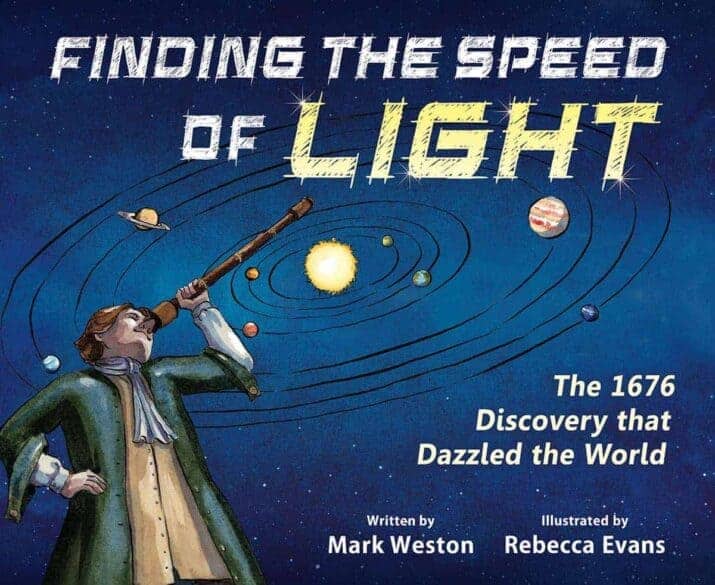
Finding the Speed of Light: The 1676 Discovery that Dazzled the World by Mark Weston, illustrated by Rebecca Evans
Story boxes and cartoon panels with often funny dialogue sit on deep purple background illustrations of starry skies. These combine to tell the history of Ole Romer, a Danish astronomer who discovered Jupiter’s four moons as well as his biggest discovery of all– the speed of light. There’s a lot of text but the cartoon panels break it up a little. Add this to your science classrooms and units on space.
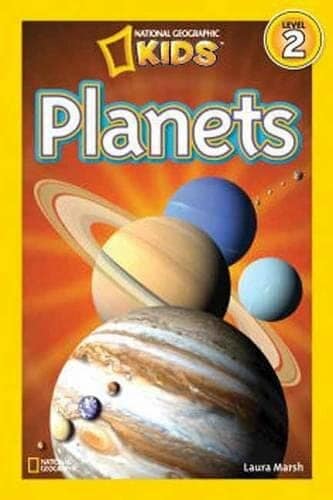
Planets by National Geographic Kids / Elizabeth Carney (level 2 reader) (ages 6 – 9)
National Geographic Kids provides another fantastic nonfiction book about the solar system for kids with readable text for beginning readers without sacrificing content. Your kids will learn so much about the different planets in this little book. It can also be read aloud to younger children.
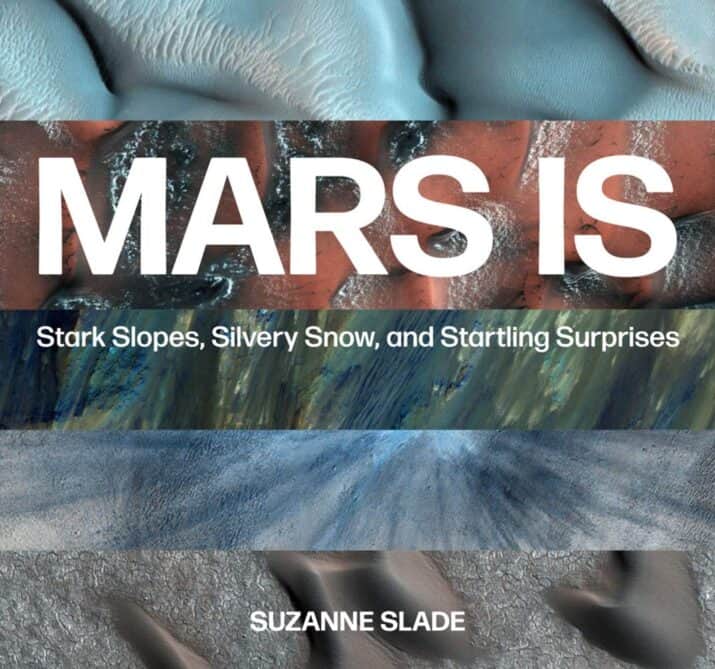
Mars Is…Stark Slopes, Slivery Snow, and Startling Surprise by Suzanne Slade
Use this unique book as a mentor text for nonfiction text structure as well as writing expository nonfiction with sensory images. Not only is the text beautiful, but the epic close-up photos will immediately draw your attention.
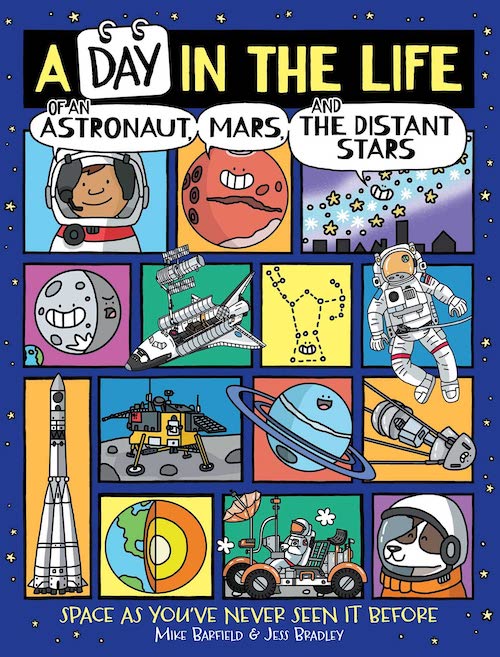
A Day in the Life of an Astronaut, Mars, and the Distant Stars by Mike Barfield and Jess Bradley
SOLAR SYSTEM
Learn about the solar system in this nonfiction comic book. The day in the life stories are first-person personified stories from the point of view of things like a Death Cloud, Meteorite, and Nebula. Packed full of information, the other story formats include bigger picture sections and secret diaries. For example, you’ll like reading the secret diary of a space monkey. Honestly, it’s amazing how much information this book teaches readers about space and how appealing it all is!
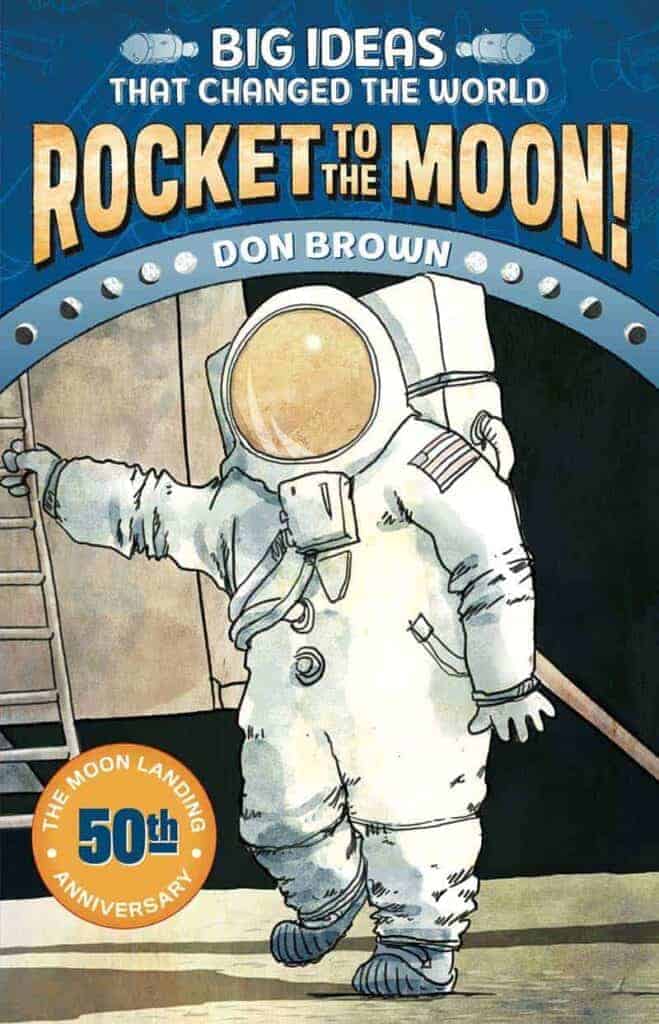
Rocket to the Moon: Big Ideas That Changed the World by Don Brown
Instead of reading a narrative nonfiction book, this fact-filled history about the first moon landing is an exciting, well-written, black-and-white graphic novel. Reading this solar system book for kids will help young readers understand our country’s competitiveness with Russia, the many attempts to launch rockets, and the eventual success of sending astronauts into space.
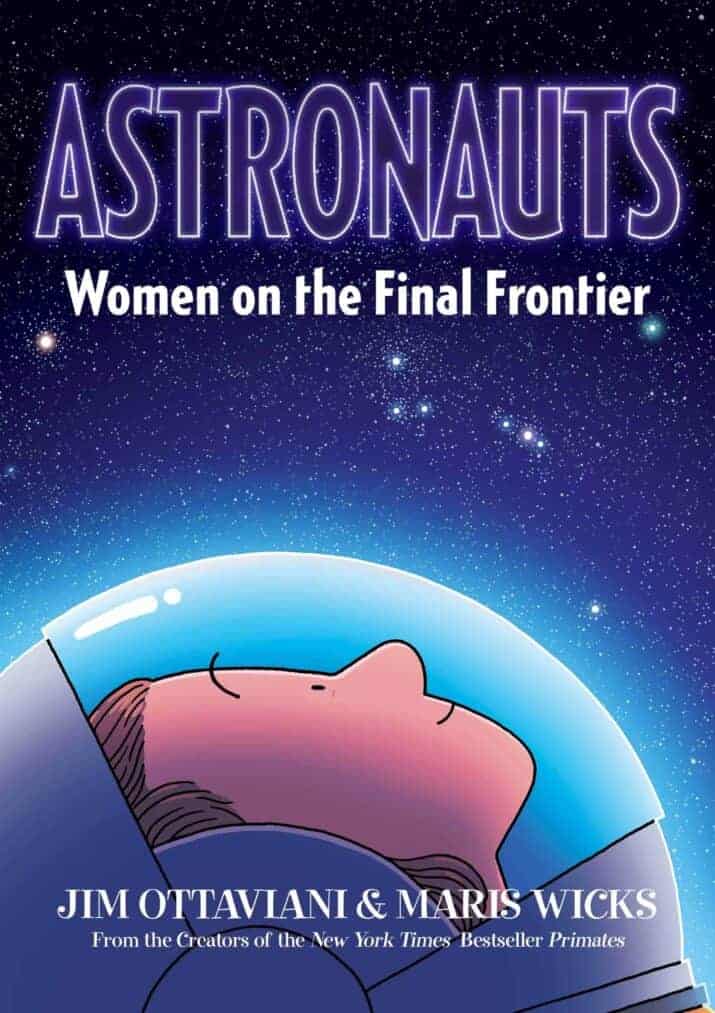
Astronauts: Women on the Final Frontier by Jim Ottaviani and Maris Wicks
What a fascinating, informative look at the difficult road that women faced in their journey to become astronauts! Despite facing misogynistic attitudes, American women persisted in their quest to become astronauts. Meanwhile, the Russians started a female space program and launched a woman astronaut long before the U.S. did. Eventually, the U.S. caught up, and you’ll be inspired by reading the stories of these fascinating trailblazers, American and Russian.
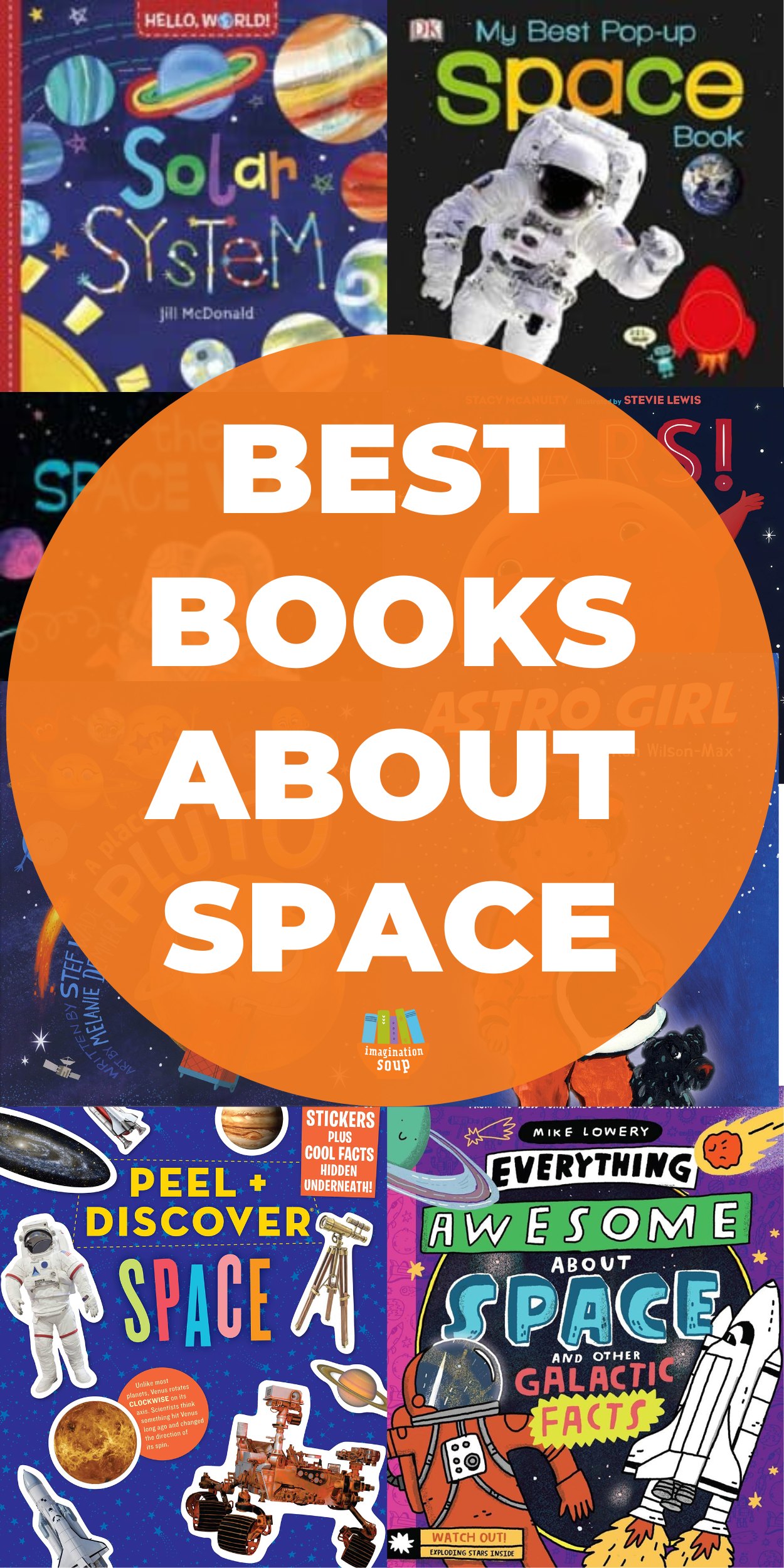
You Might Also Like:

